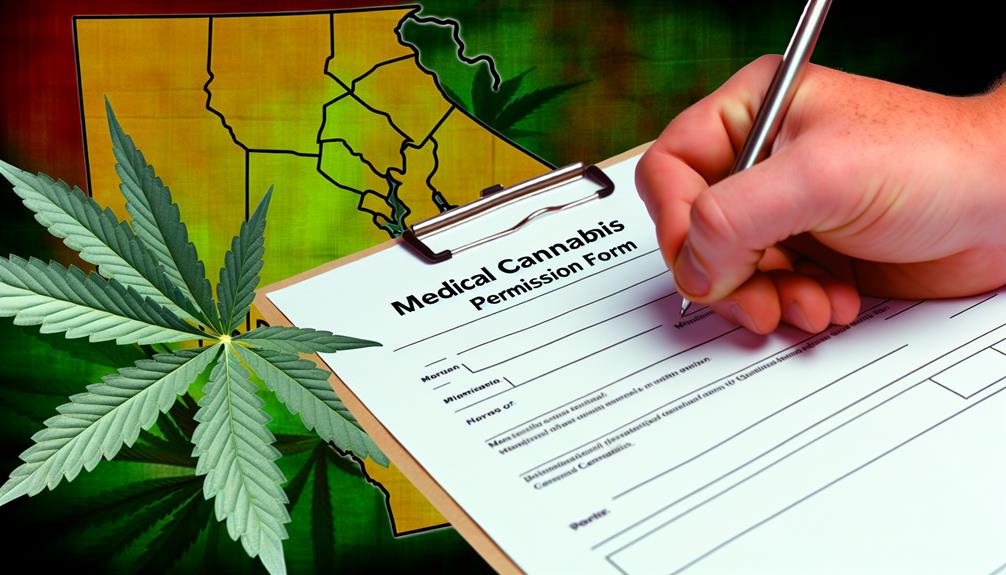While it’s easy to misconstrue the liberalization of marijuana laws as a free-for-all, Delaware’s new medical marijuana laws are far from that. They’re designed with a careful balance of accessibility for patients and regulatory oversight. You might wonder how increasing the legal possession limit to six ounces and permitting bi-weekly purchases of three ounces from licensed dispensaries can enhance patient care without encouraging misuse. That’s an aspect worth exploring, as it sheds light on the state’s commitment to facilitating better healthcare while maintaining its responsibility to prevent abuse.
Table of Contents
Understanding Delaware’s Legal Framework

One must comprehend that Delaware’s legal framework for medical marijuana is both intricate and strictly regulated. You’ll find traversing this landscape is riddled with regulatory challenges, yet it’s a task you must undertake if you’re devoted to serving others in this space.
Dive into the legal history and you’ll see the initial bill passed in 2011. However, don’t stop there. You should understand that the implementation was delayed due to concerns of potential federal prosecution. It wasn’t until 2014 that the first dispensary opened, reflecting the complexity and caution involved in this process.
In 2016, the law expanded to include minors with qualifying conditions. This change represented a significant step towards inclusivity, but it also introduced additional regulatory hurdles. Minors require two physician recommendations, and the marijuana can’t be smoked—it must be in oil or capsule form.
Moreover, you’d do well to remember that Delaware’s medical marijuana program is overseen by the Division of Public Health. They’re responsible for issuing identification cards, licensing dispensaries, and enforcing compliance.
Qualifying Conditions for Access
Maneuvering through the labyrinth of medical marijuana laws, you may wonder what conditions qualify for access in Delaware. As a caregiver or healthcare provider, understanding these qualifying conditions is crucial to guarantee ideal patient eligibility.
Delaware’s list of qualifying conditions is extensive, covering a broad spectrum of ailments. These range from severe debilitating conditions like cancer, HIV/AIDS, and Post-Traumatic Stress Disorder (PTSD), to chronic diseases such as glaucoma, Hepatitis C, and multiple sclerosis.
Patients with debilitating conditions that produce persistent muscle spasms, severe nausea or seizures also qualify.
But qualifying conditions don’t end there. Delaware is one of few states which includes Alzheimer’s disease in its list. Additionally, patients with a chronic or debilitating disease or medical condition that produces severe persistent pain are eligible.
It’s not just about ticking boxes on a list of diseases though; the state requires these conditions must be severe enough to greatly interfere with daily activities.
As a result, it’s not only about presenting a diagnosis but also demonstrating how severely it impacts life quality.
Patient Application and Approval Process

Navigating through applying for medical marijuana in Delaware requires understanding specific steps involved:
- Determine patient eligibility criteria: First ensure meeting eligibility criteria including being diagnosed with qualifying condition & residency proof within state boundaries;
- Prepare application: Once confirmed eligible start preparing application gathering necessary documents like proof-of-residency records along written certification licensed physician;
- Submit application: After ready submit it towards Division Public Health keeping aware timeline since processing times vary;
- Await approval: Finally wait several weeks upon receiving card post-approval completion process successfully!
Possession & Purchasing Limits
< p > Steering maze medicinal cannabis possession purchasing limits challenging endeavor however understanding regulations essential guaranteeing serving clients effectively responsibly .
< p > In Delaware patients caregivers allowed possess up six ounces medicinal cannabis time limit applies forms including edible products .
< p > Within those six ounces permitted variety products allowing flexibility based client needs preferences .
< p > As purchasing limits know buy three every two weeks rule place prevent overuse guarantee intended purpose .
< p > Important understand cultivation rights patients caregivers don ‘ t right grow own all obtained state – licensed compassion center maintain quality control safety standards .
< h 2 > Implications Healthcare Providers
< P As healthcare provider understanding implications practice vital new haven ' t only expanded access created responsibilities opportunities education .
< ol >< li >< strong Responsibilities expected make informed decisions recommending means potential benefits risks legalities involved .
< li >< strong Education important role educating using responsibly instruction dosage side effects rights limitations .
< li >< strong Documentation Proper documentation fundamental recommendations clearly documented records indicating rationale use .
< li >< strong Ongoing Monitoring Regular follow-ups help monitor effectiveness adverse effects .

